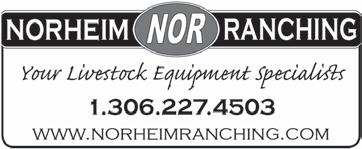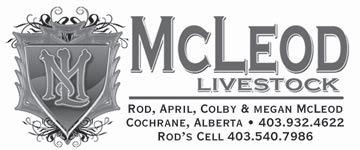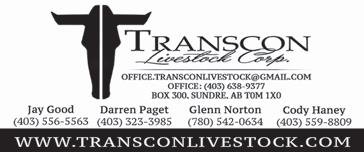
5 minute read
Canadian Cattlemen’s Association News
Bob Lowe, President
As we now settle into a new year brimmed with optimism and opportunities, our industry must continue to demonstrate resiliency and continue our efforts to overcome the challenges that faced us last year and now into 2021. We could not have fathomed a year ago how the pandemic, a human health issue, could have such potential long-term impacts for Canadian beef producers.
Advertisement
While we don’t know what exactly this coming year will bring, we need to remain vigilant and realistic about the pandemic’s legacy on our industry. This is not the time to become complacent. We must keep moving our industry forward to remain competitive on the world stage through strengthening our trade agreements, providing solutions to government to enhance the responsiveness of business risk management programs, and continuing conversations with consumers about where their food comes from and the connection between cattle and the environment, just to name a few.
I believe the Canadian beef industry is poised and well-positioned to help rebuild the Canadian economy and secure future growth. That’s why CCA’s response to COVID-19 continues to focus on maintaining business continuity. We remain committed to ensuring our industry can function as best as possible during these uncertain times, whether that be ensuring a smooth sales and calving season by developing protocols for cattle sales and business activities, keeping our borders open for trade, ensuring inspection services remained available and working with processing plants to maintain or to quickly recover capacity.
Looking optimistically at the big picture, trade will continue to be an important component of our ability to overcome the economic impacts from COVID-19. While CCA is pleased with the overall improved market access that has been attained in recent years, it is more important than ever we continue to grow our exports by accessing new markets and through the removal of technical trade barriers.
As a cattle producer, there is no better time than now to evaluate our farm operations. The run of fall calf sales is fresh in our minds and we know how our calves performed. Many of us are now into calving so we can see what is ahead based on the bulls we used last year. With bull sale season starting, we can use this information to select bulls that will work in our environment and get the results that we are looking for. There is a lot of useful information available and it is often challenging to sort through.
Having a good discussion with the breeder will help narrow your search. Selecting the right bull will have a significant influence on the price we receive for our calves and ultimately the experience a consumer will have at their dinner table.
I remind and encourage you to be diligent and monitor changing regulations regarding the COVID-19 pandemic. We all recognize how critical bull sale season is to our industry and we need them to continue whether in person or online. Last year, we adjusted how sales were conducted at the onset of the pandemic and it was a great example of the resiliencey of cattle producers across Canada. Most of us have family operations with limited help and we can’t afford to be sick, especially in these winter months when our cattle need to be fed, cows calved and calves doctored. The CCA has developed a set of guidelines for attending and hosting auction sales in 2021, which is a best practice reference document to help keep everone healthy. There is also useful information available on provincial health authority websites to help businesses navigate and implement protocols to keep their employees safe and remain open as we work to put food on the plates of Canadians.
When I speak of being hopeful about the future, we also have a positive story to tell about the connection between cattle and the environment. Through the 2030 beef goals, our industry is demonstrating our commitment to continually improving our stewardship practices. A great example of this is McDonald’s Canada showing their commitment to Canadian beef producers and sustainability by highlighting sustainable beef sourcing in their Quarter Pounder® line of burgers. McDonald’s is now sourcing at least 30 per cent of the beef for the Quarter Pounder line-up from CRSB Certified Sustainable farms and ranches. I’m sure many of you have now seen a number of commercials, which helps share our sustainability story with consumers across Canada.
Now more than ever, we are committed to keeping the lines of communication open between industry stakeholders and the Government and ultimately positively impact our producers from coast to coast.
Stay tuned for industry updates through Action News, our bi-weekly newsletter, social media channels and regular updates in the COVID-19 resources section on our website.



Your next herdbull IS CLOSER THAN YOU THINK
Breeder web pages • Sale catalogues • Videos • News as it happens • Calendar of Events www.charolaisbanner.com If it’s Charolais, it’s here.

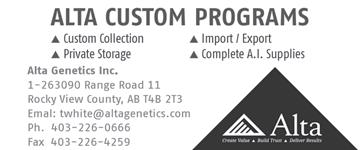
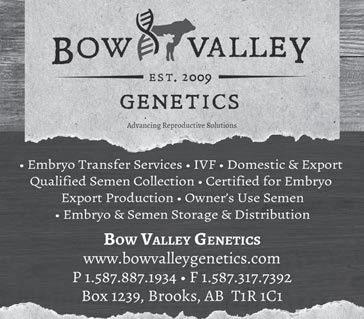
Services






Advertise Your Services Here!





Call today and get your name out there! 306.584.7937



